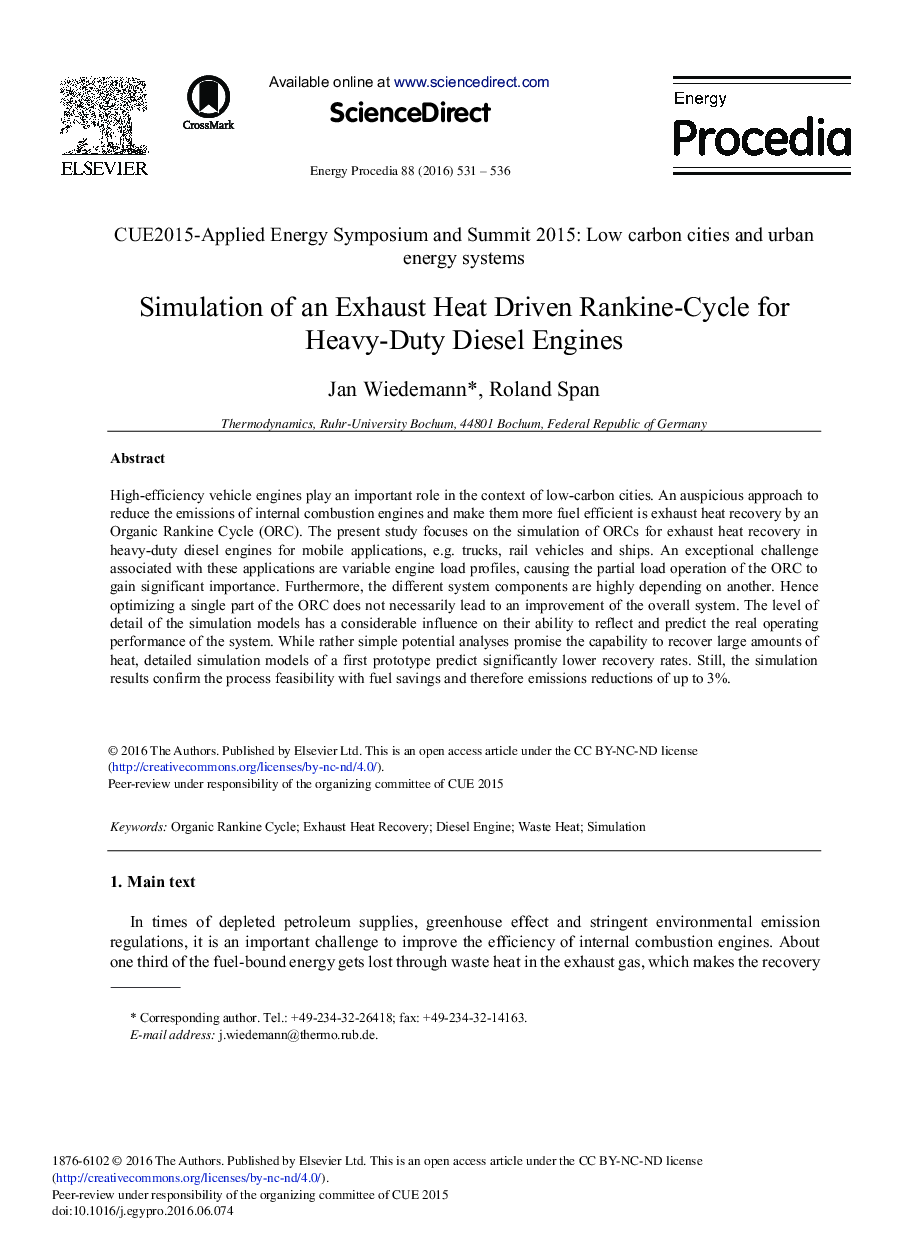| Article ID | Journal | Published Year | Pages | File Type |
|---|---|---|---|---|
| 1508856 | Energy Procedia | 2016 | 6 Pages |
High-efficiency vehicle engines play an important role in the context of low-carbon cities. An auspicious approach to reduce the emissions of internal combustion engines and make them more fuel efficient is exhaust heat recovery by an Organic Rankine Cycle (ORC). The present study focuses on the simulation of ORCs for exhaust heat recovery in heavy-duty diesel engines for mobile applications, e.g. trucks, rail vehicles and ships. An exceptional challenge associated with these applications are variable engine load profiles, causing the partial load operation of the ORC to gain significant importance. Furthermore, the different system components are highly depending on another. Hence optimizing a single part of the ORC does not necessarily lead to an improvement of the overall system. The level of detail of the simulation models has a considerable influence on their ability to reflect and predict the real operating performance of the system. While rather simple potential analyses promise the capability to recover large amounts of heat, detailed simulation models of a first prototype predict significantly lower recovery rates. Still, the simulation results confirm the process feasibility with fuel savings and therefore emissions reductions of up to 3%.
